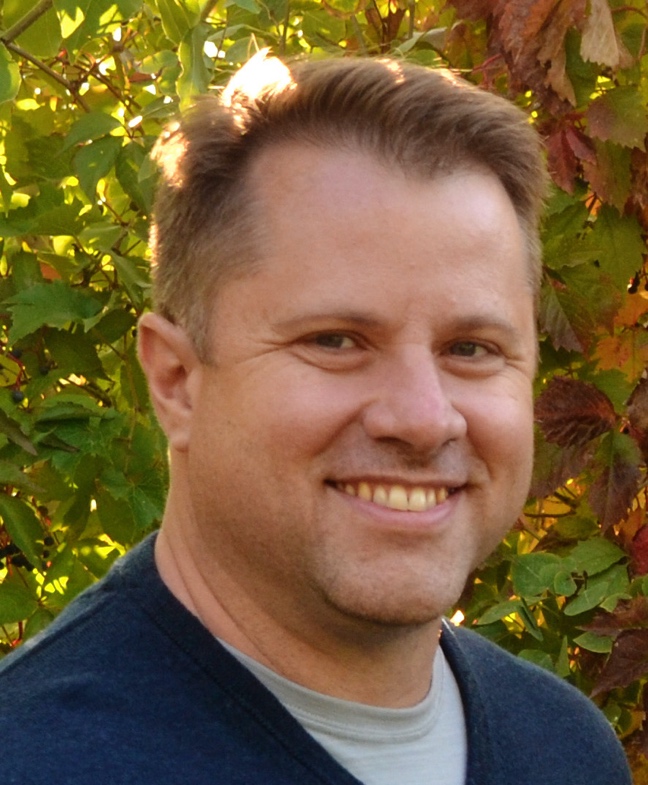Matthew Williams
Professor of Microbiology and Immunology
T cell Differentiation and Function in Response to Infections and Tumors, Immunologic Memory

Molecular Biology Program
Education
B.S. Brigham Young University
Ph.D. Emory University
Research
Matthew Williams, PhD, is Professor in the Department of Pathology, Division of Microbiology and Immunology at the University of Utah. He is also a member of the Cell Response and Regulation program within the Huntsman Cancer Institute. The Williams laboratory studies T cell differentiation and function in response to infections and tumors.
Following viral or bacterial infection, numerous components of the immune response play a role in recognizing, engaging and eradicating the offending pathogen. T cells are particularly central to protection from a wide variety of infections. A key hallmark of protective T cell responses is the long-lived (in many cases life-long) persistence of memory T cells after the pathogen is cleared. Because memory T cells are present at elevated frequencies and recognize the pathogen much more quickly than naïve T cells, they are able to provide rapid protection upon encountering the same pathogen a second time. While many successful vaccines of the past have relied on the development of antibody responses for their protective effect, future disease challenges will require the induction of cell-mediated protection provided by T cells. The research focus of the Williams laboratory is to understand the nature of T cell intrinsic signals, such as the T-cell receptor, and T cell extrinsic signals, such as inflammation, in promoting the ability of T cells to acquire the functions that allow them to eradicate pathogens and form long-lived immunological memory.
A major obstacle in harnessing the immune system to combat cancer is the ability of many tumors to inhibit T cell function. The Williams laboratory is seeking to unravel the mechanisms that tumors use to suppress T-cell responses and develop strategies to circumvent them. The end goal is to improve upon existing immune-based therapies to induce long-lived, highly functional anti-tumor T cells that promote durable cancer remission.
References
- Burnett WJ, Burnett DM, Parkman G, Ramstead A, Contreras N, Gravley W, Holmen SL, WilliamsMA, VanBrocklin MW (2021). Prior Exposure to Coxsackievirus A21 Does Not Mitigate Oncolytic Therapeutic Efficacy. Cancers (Basel), 13(17).
- Khatun A, Kasmani MY, Zander R, Schauder DM, Snook JP, Shen J, Wu X, Burns R, Chen Y-G, Lin C-W, Williams MA, Cui W (2021). Single-cell lineage mapping of a diverse virus-specific naive CD4 T cell repertoire. J Exp Med, 218(3), e20200650.
- Snook JP, Soedel AJ, Ekiz HA, O'Connell RM, Williams MA (2020). Inhibition of SHP-1 expands the repertoire of antitumor T cells available to respond to immune checkpoint blockade. CancerImmunol Res, 8(4), 506-517.
- Ekiz HA, Huffaker TB, Grossmann AH, Stephens WZ, Williams MA, Round JL, O'Connell RM (2019). MicroRNA-155 coordinates the immunological landscape within murine melanoma and correlates with immunity in human cancers. JCI Insight, 4(6).
- Snook JP, Kim C, Williams MA (2018). TCR signal strength controls the differentiation of CD4+ effector and memory T cells. Sci Immunol, 3(25).
- Ekiz HA, Lai SA, Gundlapalli H, Haroun F, Williams MA, Welm AL (2018). Inhibition of RON kinase potentiates anti-CTLA-4 immunotherapy to shrink breast tumors and prevent metastatic outgrowth. Oncoimmunology, 7(9), e1480286.
- Whiteside SK, Snook JP, Ma Y, Sonderegger FL, Fisher C, Petersen C, Zachary JF, Round JL, Williams MA, Weis JJ (2018). IL-10 Deficiency Reveals a Role for TLR2-Dependent Bystander Activation of T Cells in Lyme Arthritis. J Immunol, 200(4), 1457-1470.
- Meek SM, Williams MA (2018). IFN-Gamma-Dependent and Independent Mechanisms of CD4⁺ Memory T Cell-Mediated Protection from Listeria Infection. Pathogens, 7(1).
- Shakya A, Goren A, Shalek A, German CN, Snook J, Kuchroo VK, Yosef N, Chan RC, Regev A, Williams MA, Tantin D (2015). Oct1 and OCA-B are selectively required for CD4 memory T cell function. J Exp Med, 212(12), 2115-31.
- Hu R, Kagele DA, Huffaker TB, Runtsch MC, Alexander M, Liu J, Bake E, Su W, Williams MA, Rao DS, Möller T, Garden GA, Round JL, O'Connell RM (2014). miR-155 promotes T follicular helper cell accumulation during chronic, low-grade inflammation. Immunity, 41(4), 605-19.
- Kim C, Jay DC, Williams MA (2014). Dynamic functional modulation of CD4+ T cell recall responses is dependent on the inflammatory environment of the secondary stimulus. PLoS Pathog, 10(5), e1004137.
- Kim C, Wilson T, Fischer KF, Williams MA (2013). Sustained interactions between T cell receptors and antigens promote the differentiation of CD4⁺ memory T cells. Immunity, 39(3), 508-20.
- Eyob H, Ekiz HA, Derose YS, Waltz SE, Williams MA, Welm AL (2013). Inhibition of ron kinase blocks conversion of micrometastases to overt metastases by boosting antitumor immunity. CancerDiscov, 3(7), 751-60.
- Jay DC, Mitchell DM, Williams MA (2013). Bim mediates the elimination of functionally unfit Th1 responders from the memory pool. PLoS One, 8(6), e67363.
- Mitchell DM, Williams MA (2013). Disparate roles for STAT5 in primary and secondary CTL responses. J Immunol, 190(7), 3390-8.
- Kim C, Jay DC, Williams MA (2012). Stability and function of secondary Th1 memory cells are dependent on the nature of the secondary stimulus. J Immunol, 189(5), 2348-55.
- Kim C, Williams MA (2010). Nature and nurture: T-cell receptor-dependent and T-cell receptor-independent differentiation cues in the selection of the memory T-cell pool. Immunology, 131(3), 310-7.
- Mitchell DM, Ravkov EV, Williams MA (2010). Distinct roles for IL-2 and IL-15 in the differentiation and survival of CD8+ effector and memory T cells. J Immunol, 184(12), 6719-30.
- Ravkov EV, Williams MA (2009). The magnitude of CD4+ T cell recall responses is controlled by the duration of the secondary stimulus. J Immunol, 183(4), 2382-9.
- Williams MA, Ravkov EV, Bevan MJ (2008). Rapid culling of the CD4+ T cell repertoire in the transition from effector to memory. Immunity, 28(4), 533-45.
- Williams MA, Bevan MJ (2007). Effector and memory CTL differentiation. Annu Rev Immunol, 25 , 171-92.
- Williams MA, Tyznik AJ, Bevan MJ (2006). Interleukin-2 signals during priming are required for secondary expansion of CD8+ memory T cells. Nature, 441(7095), 890-3.
